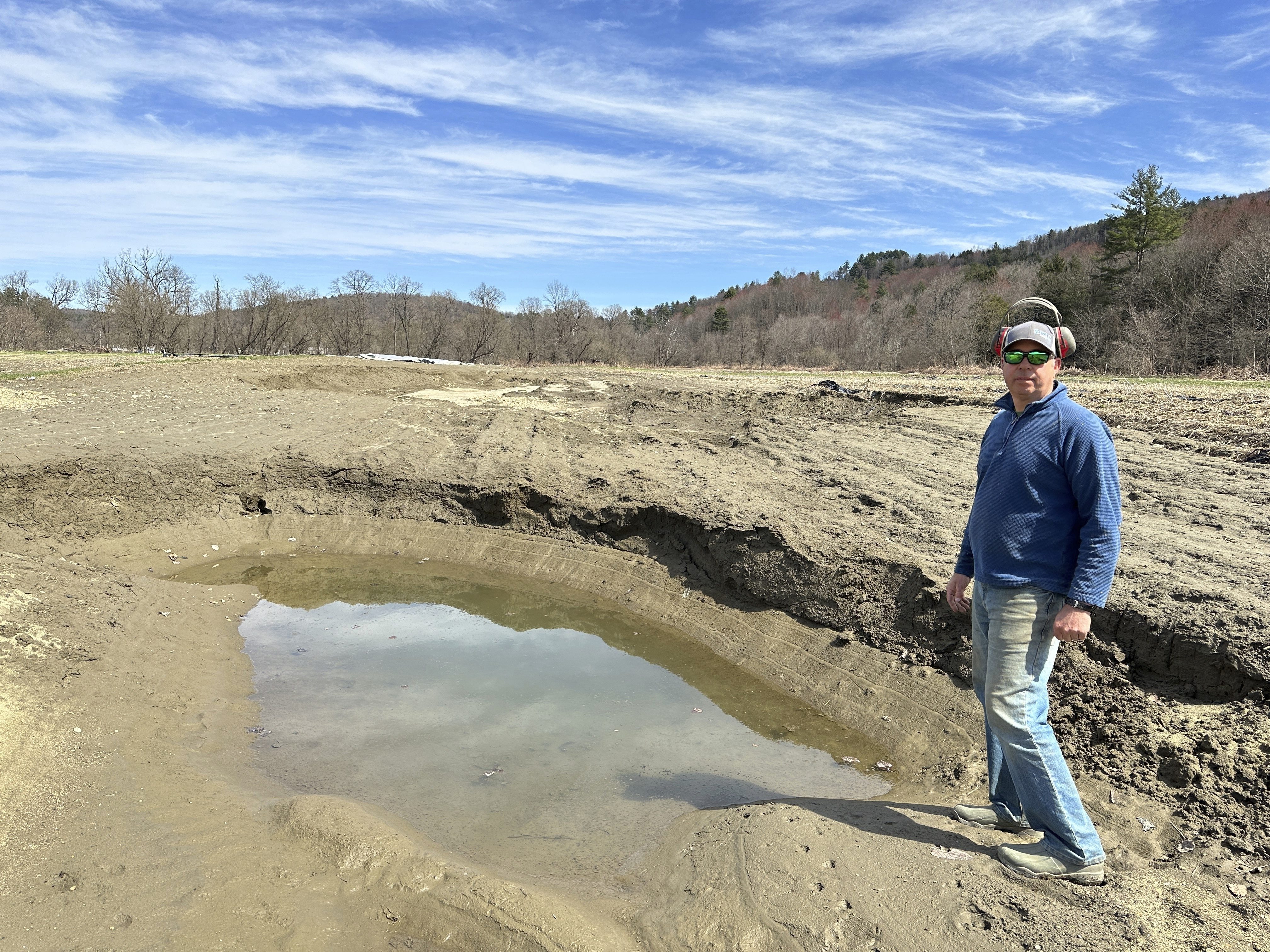A tiny pest is forcing a Vermont city to remove tens of thousands of infested trees, in an effort to protect its municipal water supply.
The city of Rutland owns a large tract of land in Mendon, from which Rutland's drinking water comes.
Now, on more than a dozen parcels of land in the watershed area, lines of bright paint signify which trees are slated for removal.
City officials said the red pines are infested with the microscopic red pine scale. That insect, over time, contributes to the weakening and eventual death of the trees.
"We have to bring these trees down before they die standing up, or else there's a substantial risk — a huge risk — for a runaway forest fire which would be the most devastating thing in terms of water quality," said Jeff Wennberg, Rutland's public works commissioner.
Wennberg said all told, 150 acres of trees will have to go.
Rutland's city forester, David Schneider, said 35-50,000 red pines will be removed; possibly more.
Vermont
The latest news from around the state
"It's unfortunate," Schneider told necn. "It's not the end of the world but it's kind of hard to see plantations that have had a lot of intensive forestry work come to an end."
It's believed the invasive bug was introduced to the U.S. through exotic trees brought to the 1939 World's Fair in New York.
Red pine scale has been the source of major headaches in Connecticut, Massachusetts, and Rhode Island for years, and has been slowly creeping north. Over the past five years or so, it has been found in New Hampshire, Maine, and now, Vermont.
Because the wood of the red pines marked for removal still has value, Rutland will soon put logging rights out to bid. Revenues will go back to funding the city's water quality, the public works commissioner said.
With such a massive number of trees marked for removal, Wennberg said the job will likely take two years.
Because the tree removal work will happen in the sensitive watershed area, Wennberg said many precautions will be taken to protect water quality.
"The work that will be done and the standards that we're going to hold the loggers and the haulers to are the highest standards that are out there," Wennberg promised.



